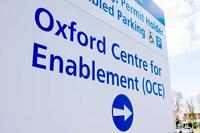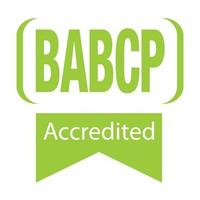Clinical Placements
Clinical Placements

Trainees on the three-year, full-time Oxford Doctorate in Clinical Psychology Training Programme undertake clinical placements within NHS clinical services across Berkshire, Buckinghamshire including Milton Keynes and Oxfordshire, including the hospitals. This is an area sometimes known as the Thames Valley. Trainees may be assigned placements in services anywhere within this geographical area. Therefore we ask all our trainees to have a valid driving license and access to a car.
Click here for a list of locations of clinical placements over the last academic year.
Our aim is for our trainees to develop a comprehensive portfolio of clinical skills whilst on clinical placements, so that by the end of training they are well prepared to start working in an NHS clinical service.
Year 1 and Year 2

Trainees usually complete four mandatory placements over the first two years of the course. These are in adult mental health; older people’s services; children, young people and families; and people with intellectual disabilities. Sometimes these placements are arranged within clinical health psychology services.
First and second year placements are approximately 5½ months in duration. Trainees spend between 60 - 70 days on these placements. The allocation of placements is based on each trainee’s learning needs and aspirations which are regularly reviewed from pre-training through to completion of the Programme.

Over the course of the Programme, trainees may express preferences to develop particular clinical competencies or to work in specific service contexts, even before the third year elective placement. These preferences, together with trainee’s broader training and professional development needs and availability of supervision, are considered by the clinical tutor team when making placement allocations.
Year 3
In the third year, trainees complete a year-long elective placement, chosen according to the preferences and special interests of the trainee.

The Oxford Programme has a wide range of exciting third year options, some of which are in national specialist services. The Programme offers flexibility here, and trainees can carry out split year-long elective placements, either with two part-time placements running simultaneously, or with two shorter placements running consecutively.
An important aim of third year placements is to equip trainees with additional skills such as leadership, consultancy, supervision and effective team-working to meet the needs of the modern NHS. Whilst some trainees recruit participants for their doctoral research study at their elective placement setting, many trainees access alternative or additional sites for recruitment of participants.
CBT, Systemic and Neuropsychology accreditation

The Oxford Programme is excited to be able to offer its trainees the option to become accredited in the Intermediate course in Systemic Theory and Practice, leading to accreditation from the Association of Family Therapy (AFT). Additionally, trainees can choose to specialise in Neuropsychology, gaining experience that counts towards requirements for the Specialist Register for Clinical Neuropsychologists as Accredited Prior Learning (APL).

The Programme is also delighted to announce Level 2 accreditation from the British Association of Behavioural and Cognitive Psychotherapies (BABCP). This means all trainees who graduate from the Oxford Programme from 2021 onwards will have received the training that is required to fulfil BABCP Minimum Training Standards, and will therefore be eligible for Provisional Accreditation as a Cognitive Behavioural Psychotherapist from the BABCP.
Support from the Programme when on clinical placement
Placements are fully integrated with the academic programme. This means that trainees receive teaching that is relevant to their current placement, before and during each placement.
A wide range of support is available within the Programme. Each trainee has a Course Tutor who oversees all aspects of the trainee’s experience, including placements, academic learning and research projects. Trainees meet with their Course Tutor at regular, scheduled meetings to review progress and learning needs. To help facilitate the effective development of clinical and professional competence, trainees usually keep the same Course Tutor throughout their training.
Placements are carefully monitored and supported by Course Tutors, who visit trainees with their placement supervisors once at the mid-point of each placement and more often if helpful. Trainees receive a minimum of 1-hour formal individual clinical supervision from their placement supervisor(s) each week whilst on placement, in addition to less formal supervision and support. A range of learning opportunities are incorporated into placements. These include trainees observing placement supervisors and other accredited psychological therapists carrying out assessment or treatment sessions, and trainees being observed by their supervisors in a structured way, including feedback given through direct assessments of clinical competence (either face-to-face or via video recordings).
Wherever possible on placements, trainees are encouraged to work with staff from other professions and with service users and carers. The Programme is committed to co-production i.e. health care professionals and service users working in partnership to develop services and conduct research. Placement feedback is 360 degree and incorporates feedback from other professional staff and service users and carers.
Living Arrangements and Travel for Trainees on the Course
Clinical placements are located throughout the Thames Valley and South Midlands, in the counties of Berkshire, Buckinghamshire, Northamptonshire, Warwickshire and Oxfordshire, and beyond given placement availability. This should be borne in mind in organising living arrangements whilst on the course. Trainees may wish to position themselves in the region closest to their allocated base. University of Oxford regulations specify that students should live within 25 miles of the centre of Oxford unless permission is granted to reside further afield. The course will allow trainees/students to live within the Thames Valley Footprint or Northamptonshire if a request is made to this effect.
Trainees will be allocated a base for the duration of training: Aylesbury (with placements across the Buckinghamshire region), Brackley (with placements across the South Midlands region), Bracknell (with placements across the Berkshire region) or Oxford (with placements across the Oxfordshire region). Allocation of base is dependent upon a number on factors including Training Needs and Aspirations, reasonable adjustments, and trainee preference. Please note - individuals are not guaranteed their preferred choice of training area / base. There are limited placement opportunities within Oxfordshire. Most trainees will not be allocated the Oxford base.
There is often travel within the placement if it is community based. All trainees are required to travel to their placements, and within their placements, in order to see clients, carers, other services, to attend meetings, and to undertake key placement activities.
All Trainee Clinical Psychologists on the Oxford Course must be able to drive and have access to a car for the duration of the three-year training course, This forms part of your training contract and is an essential criteria of the role.
Concerning driving, in line with the Equality Act 2010 and ACAS (Advisory, Conciliation and Arbitration Service) guidance, the Oxford Course will try to accommodate occupational health recommended reasonable adjustments where practical. However, due to the available placement providers there can be no guarantee of a placement close to where trainees live, or within Oxford city. Any such reasonable adjustments will not preclude travel to / within placements. Adjustments are 'reasonable' within the parameters and context of training, with the awareness that clinical placements are spread out across the Thames Valley and South Midlands area. For those candidates with such reasonable adjustments, travel will be via public transport typically.
Trainees on the course are eligible for the Trust’s car leasing scheme.



